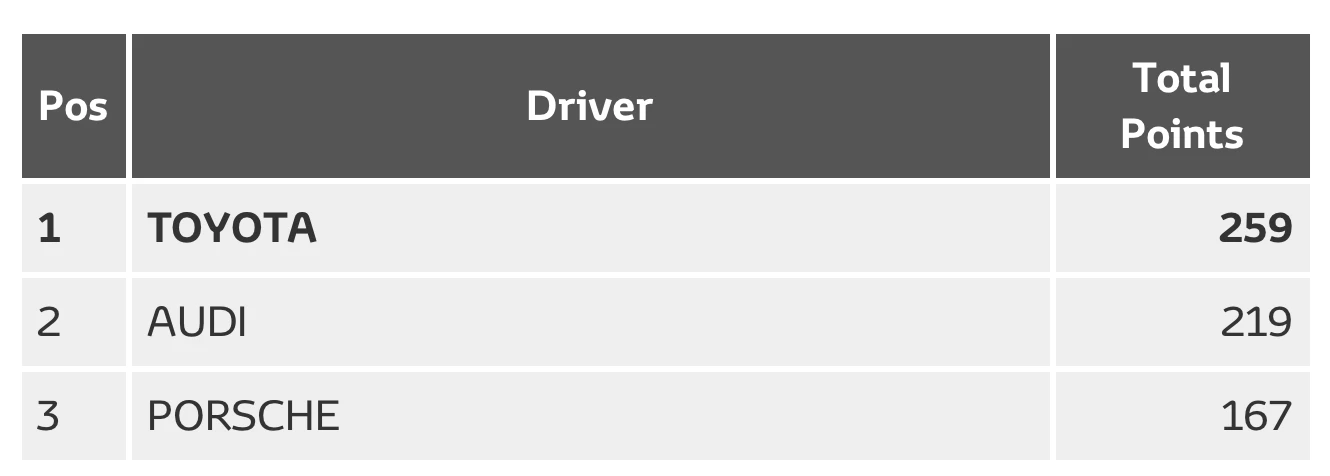Toyota Racing won the Six Hours of Bahrain on the weekend, completing its fifth victory from seven races of the 2014 FIA World Endurance Championship (WEC) season and giving Anthony Davidson and Sébastien Buemi the WEC drivers' title with a race to spare. The result almost guarantees Toyota will also win the manufacturers' Championship, extending its lead over Audi to 40 points with only 44 points available in the final race at Sao Paulo on November 30.
The 1000 horsepower TS040 Hybrid was a rank outsider when the series began, as it was facing the Audi team which had won the last (and only) two World Endurance Championships, and 12 of the previous 14 Le Mans 24 Hours races, plus a reformed Porsche team which had experienced a similar period of endurance racing dominance in the final decades of the last century.
Two more formidable opponents could not be envisaged in endurance racing, and as hybrid cars become increasingly more important in the world's quest to avoid drowning in its automotive excrement, Toyota saw winning as vitally important to its leadership in the area.
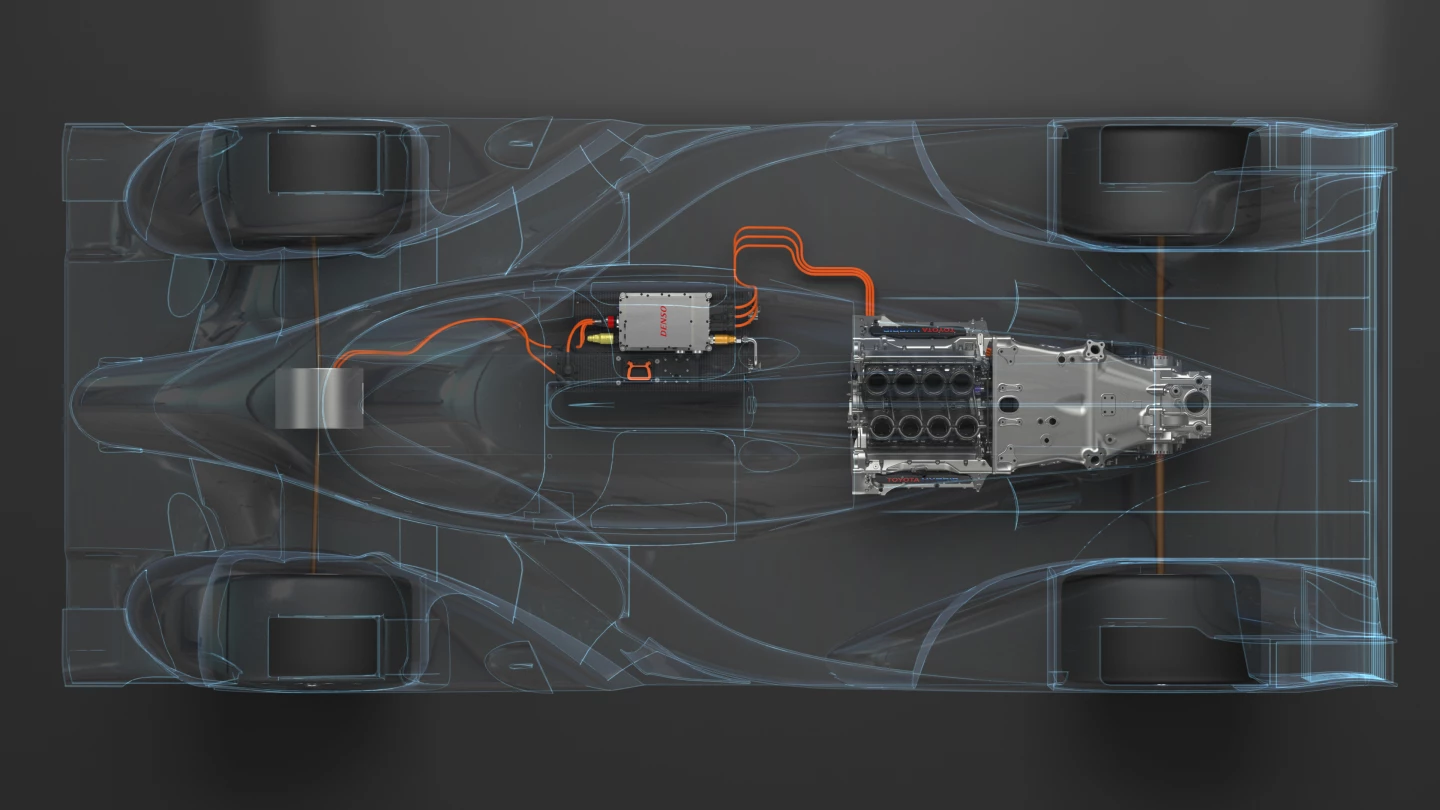
All three of the manufacturers which contested the series this year used highly complex hybrid powertrains and we previewed the "battle of the hybrids" back in March.
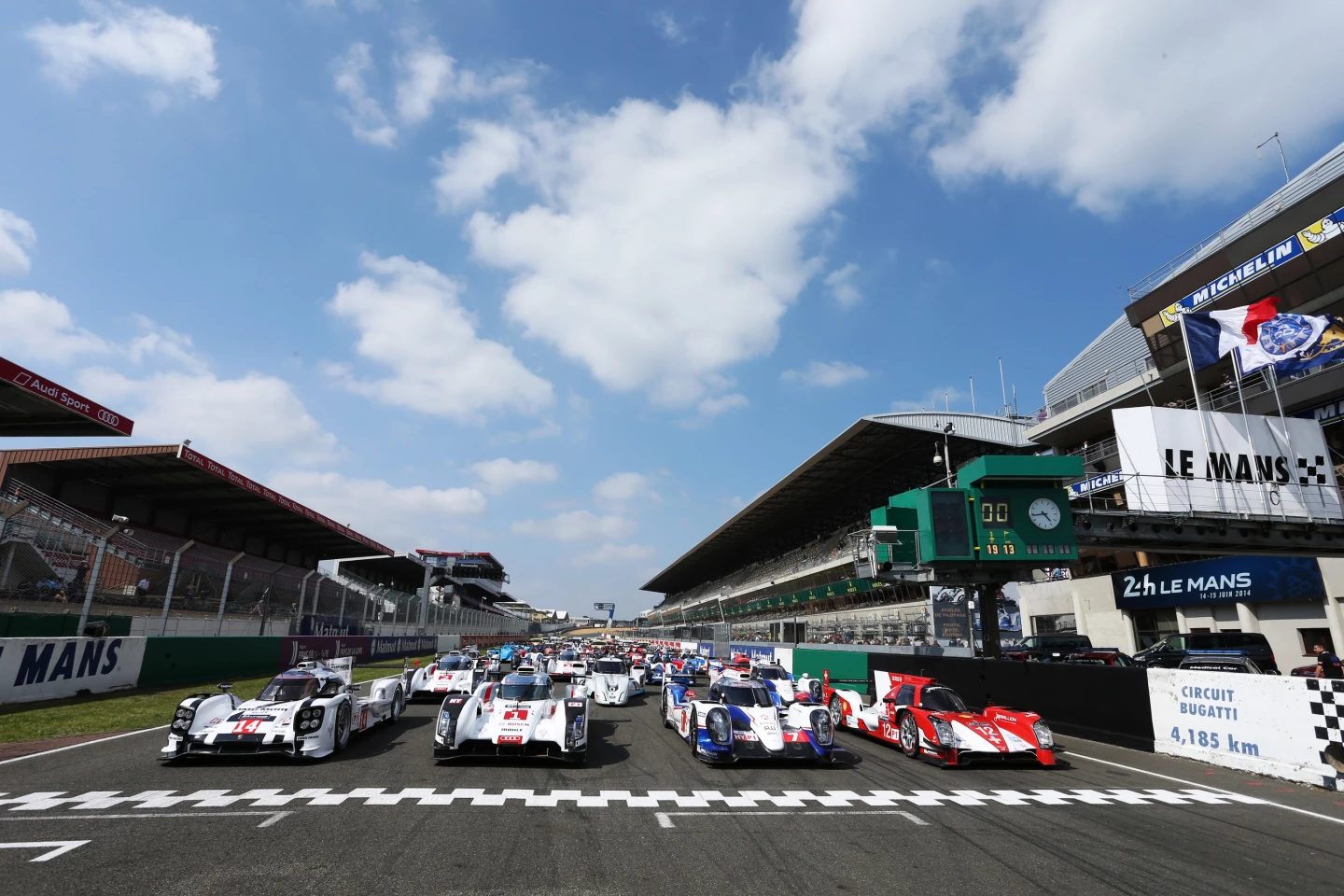
Indeed, the last time Toyota won a world drivers championship of any form, was Didier Auriol in the 1994 World Rally Championship, two decades ago, and in the meantime the world's largest car maker had set a world record for profligacy by spending billions of dollars in an almost entirely fruitless Formula One attempt.
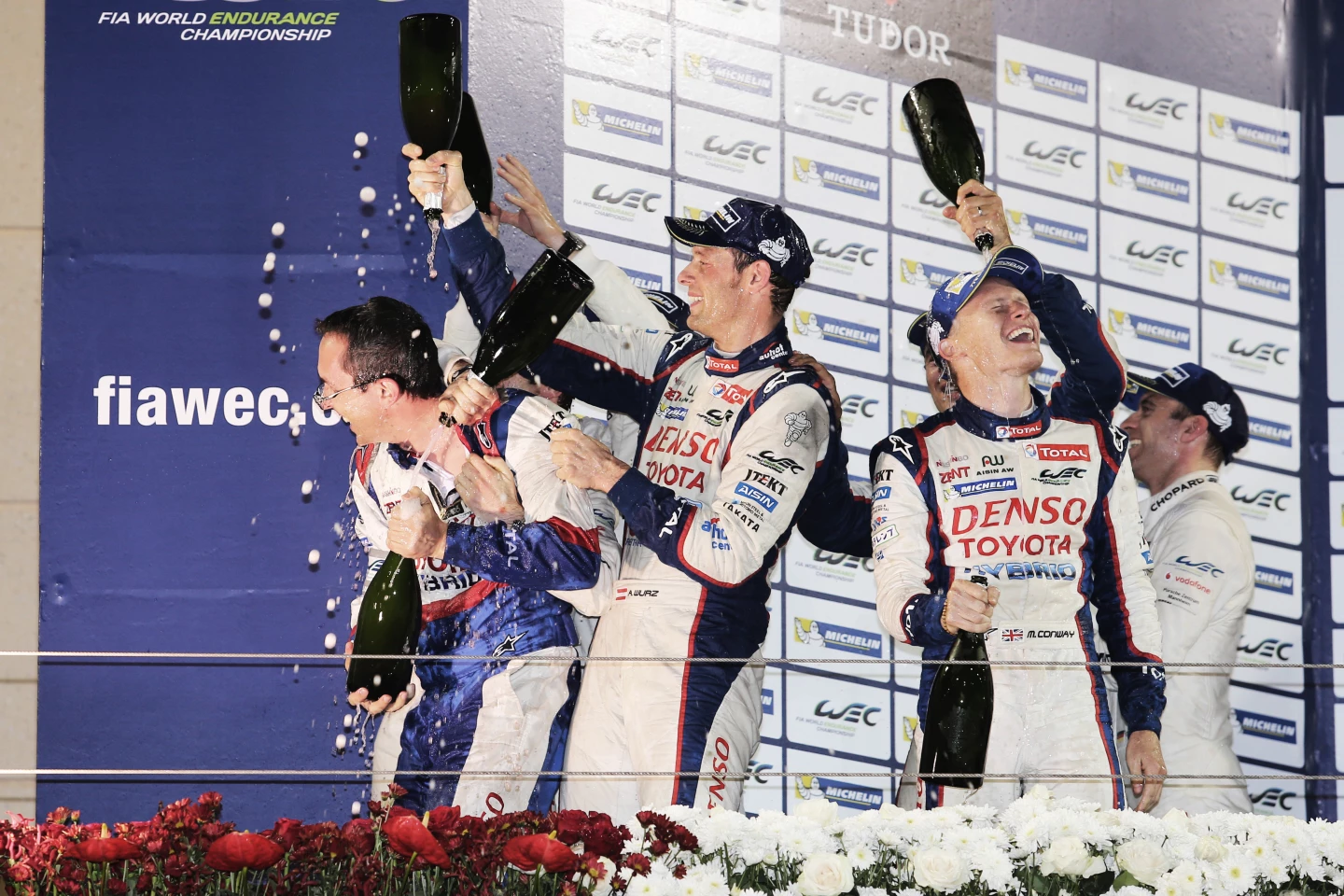
Times change though, and with back-to-back wins in the first two races of the season, it went to Le Mans with hopes that its hybrid technology leadership on the road (Toyota has sold more hybrids than any other manufacturer – around 7.4 million to date) could be translated to success in the world's most important motor race.
Alas, it was not to be, though the part that undoubtedly cost the team the race was not a Toyota part but an FIM-mandated piece of monitoring equipment. Toyota had the pace, but not the luck. Just the same, with just one race of the 2104 endurance series to go, Le Mans is one of just two races the team hasn't won in 2014.
The Le Mans loss, after looking like a win within a few hours of the finish, was a devastating blow to Toyota. In retrospect, it was probably more due to the meticulous planning of an Audi team which had refined winning the 24 hour race to a high art form over the last decade and a half. Toyota will enter 2015 with far more confidence it has the wherewithal to tackle its far better-credentialed opponents.
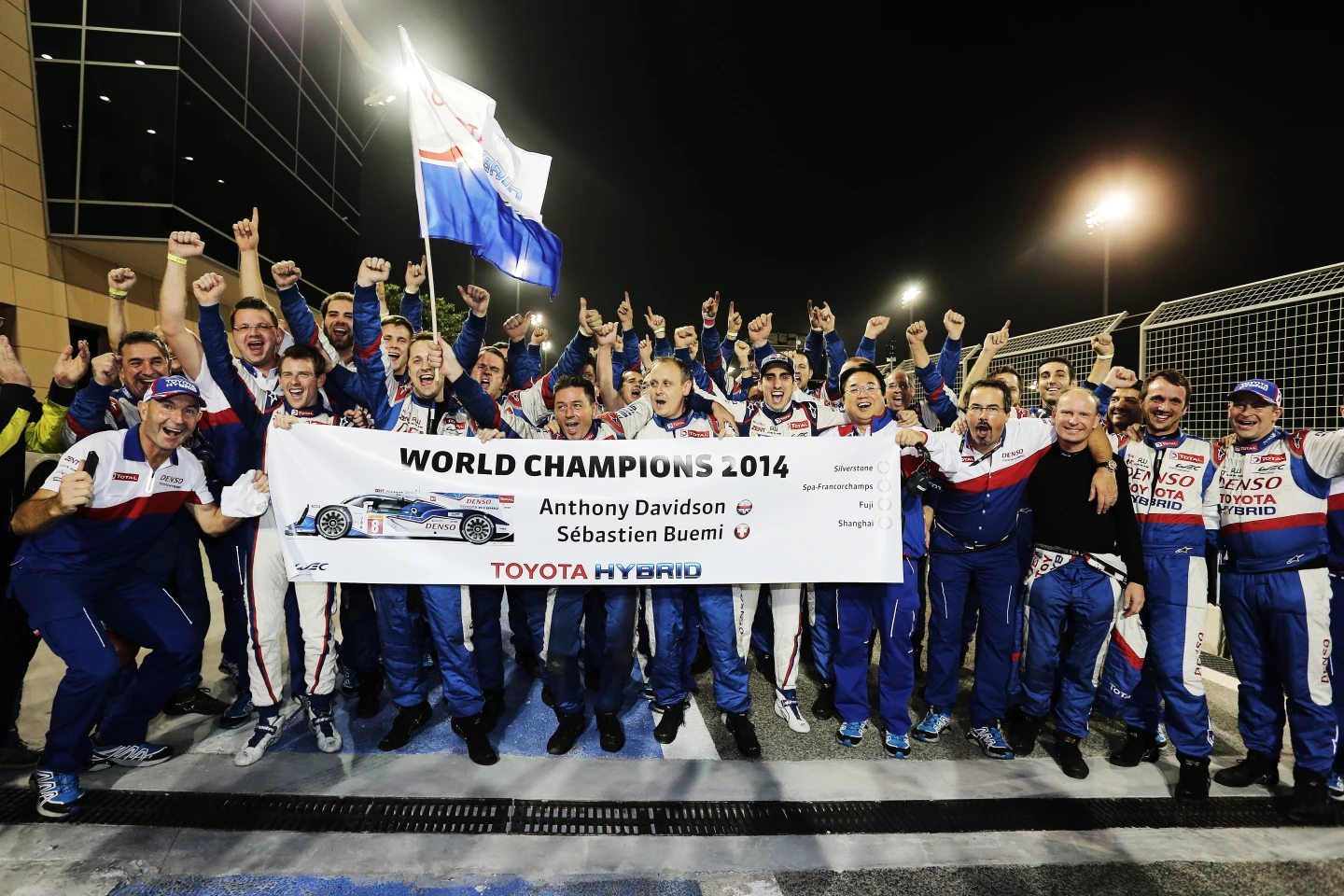
The WEC win will add significant marketing legitimacy to Toyota's road hybrid range, just as Mercedes-Benz has reaped massive promotional success from its Formula One dominance this year. Mercedes-Benz even realigned branding mid-season to capitalize on the Formula One success.
Toyota's championship comes at a very useful time for the world's largest automaker. Toyota already sells 27 different hybrid passenger car models and one plug-in hybrid in more than 90 countries and regions.
It believes that environment-friendly vehicles can only have a significant positive impact if they are widely used, and the company is clearly making massive efforts to encourage the mass-market adoption of hybrid vehicles.
Between January, 2014 and December 2015, Toyota will launch a total of 15 new hybrid vehicles, including the Voxy Hybrid and Noah Hybrid (Japan only) launched in January, the Lexus NX 300h launched in July and the Lexus RC 300h launched a few weeks ago.
Toyota calculates that as of September 30, Toyota hybrid vehicles have resulted in approximately 49 million fewer tons of CO2 emissions than would have been emitted by gasoline-powered vehicles of similar size and driving performance. Toyota also estimates that its hybrid vehicles have saved approximately 18 million kiloliters of gasoline compared to the amount used by gasoline-powered vehicles of similar sizes.
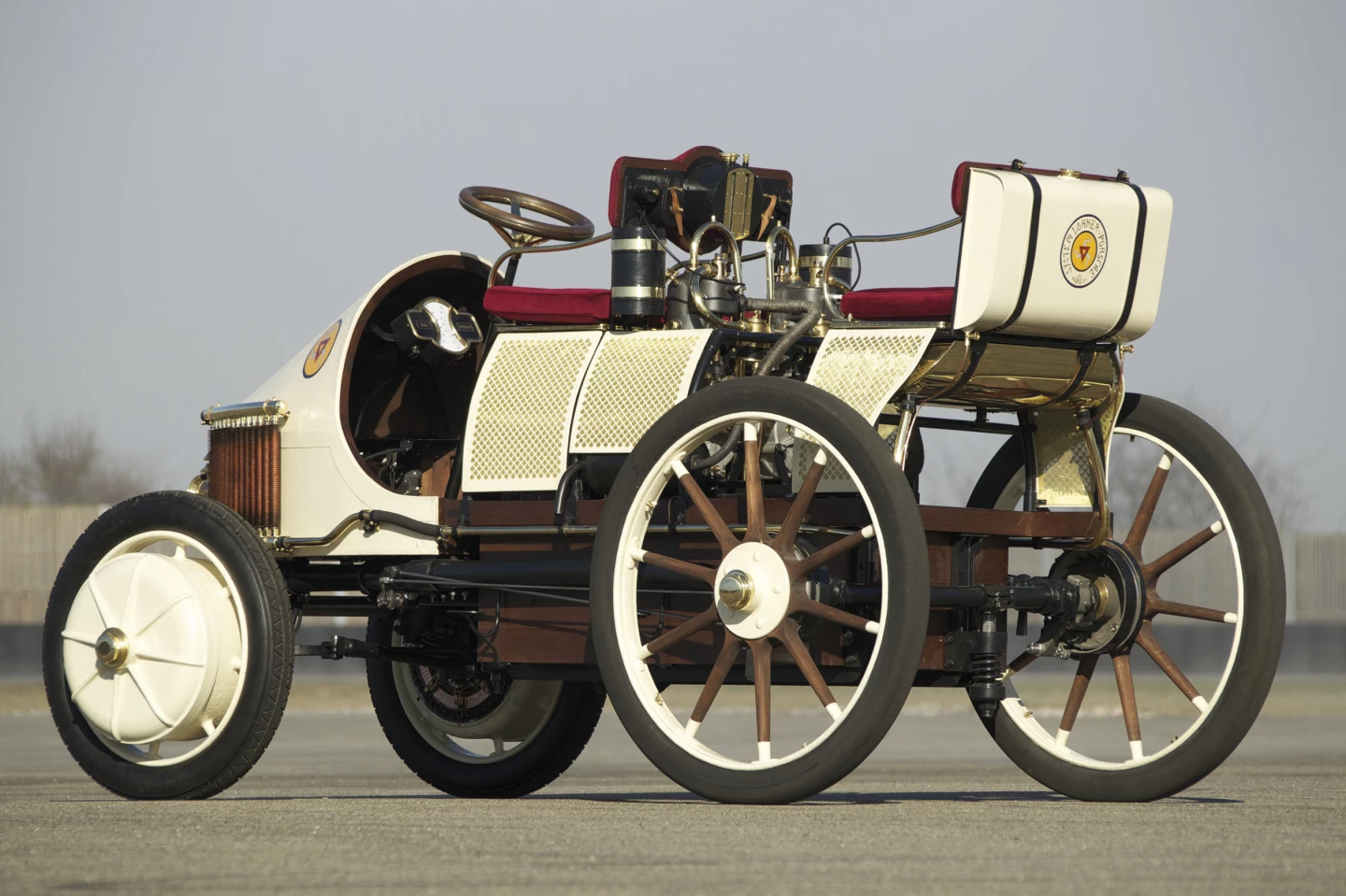
Though Toyota was not the first company to market a hybrid car (that honor goes to the Semper Vivus built by Ferdinand Porsche in 1900 pictured above), it was the first to produce one in the modern era when it launched the Coaster Hybrid EV in August 1997 and the Prius in December of the same year. The Prius was the world's first mass-produced hybrid passenger vehicle. Since then it has clocked up around 7.4 million hybrid sales.
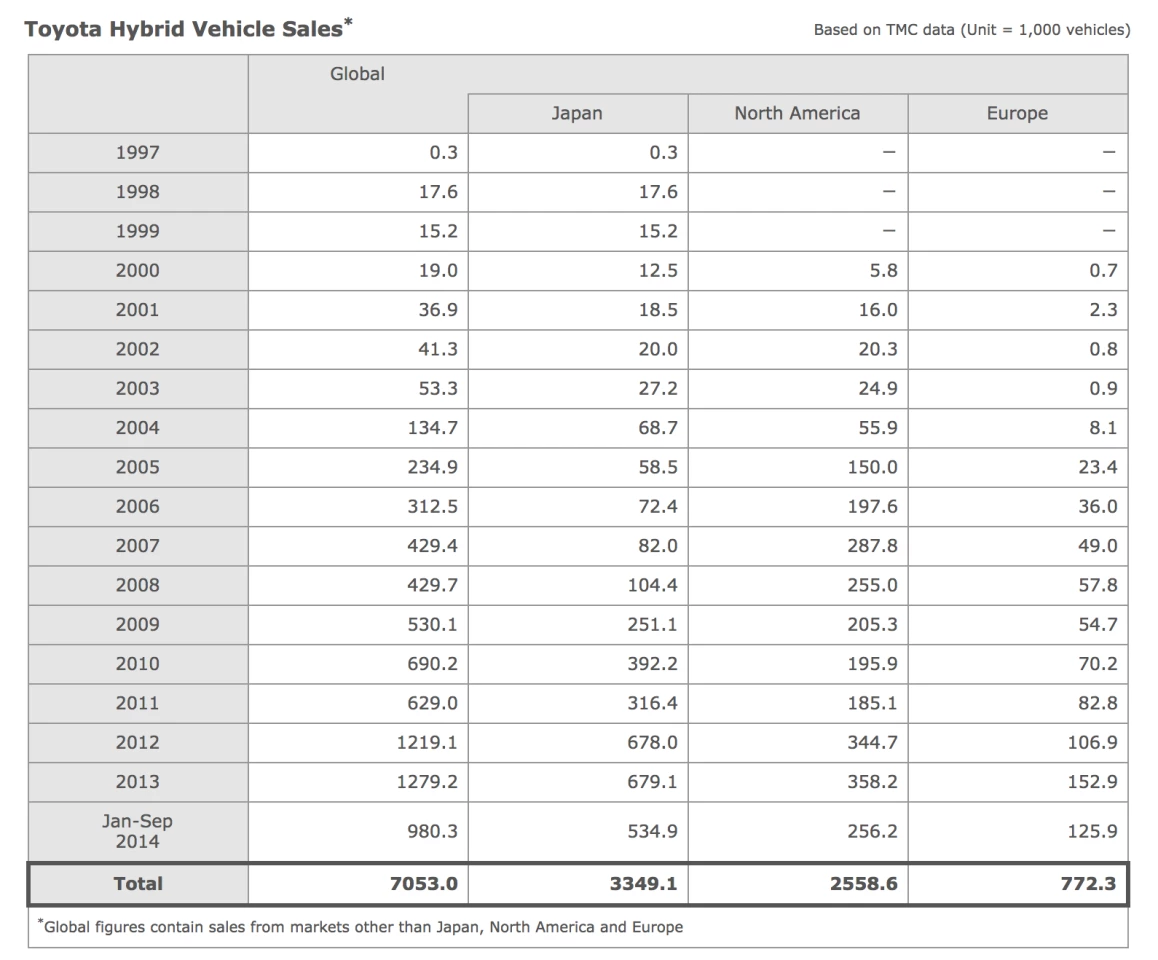
In addition to its racing activities to ensure it is seen as being at the very forefront of hybrid design, Toyota is developing and testing electric vehicle charging infrastructure for plug-in hybrid vehicles (PHVs) and electric vehicles (EVs).
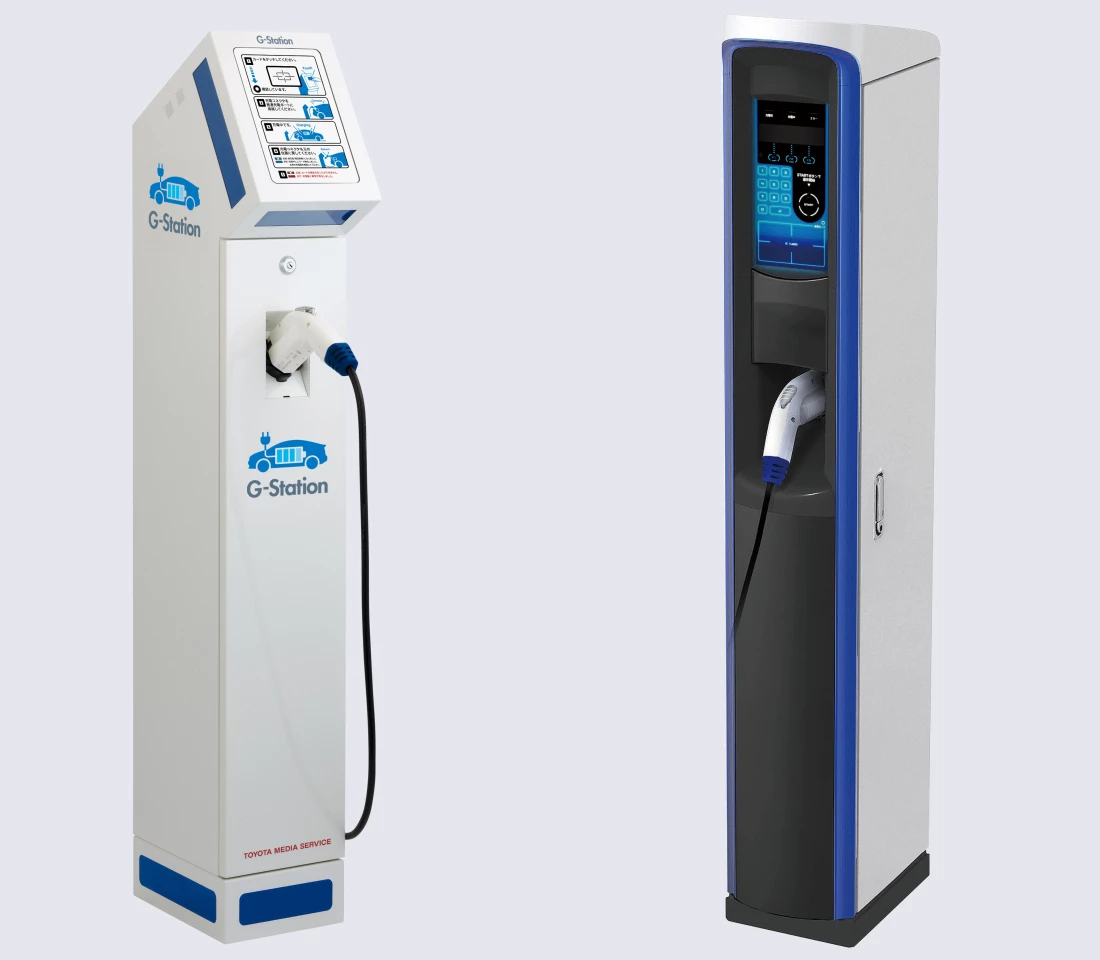
The seventh round of the World Endurance Championship in Bahrain on the weekend did not go to the leading Toyota Hybrid team but to the second team comprising Alex Wurz, Stéphane Sarrazin and Mike Conway which won its first race of the season. Here are the latest points tallies:
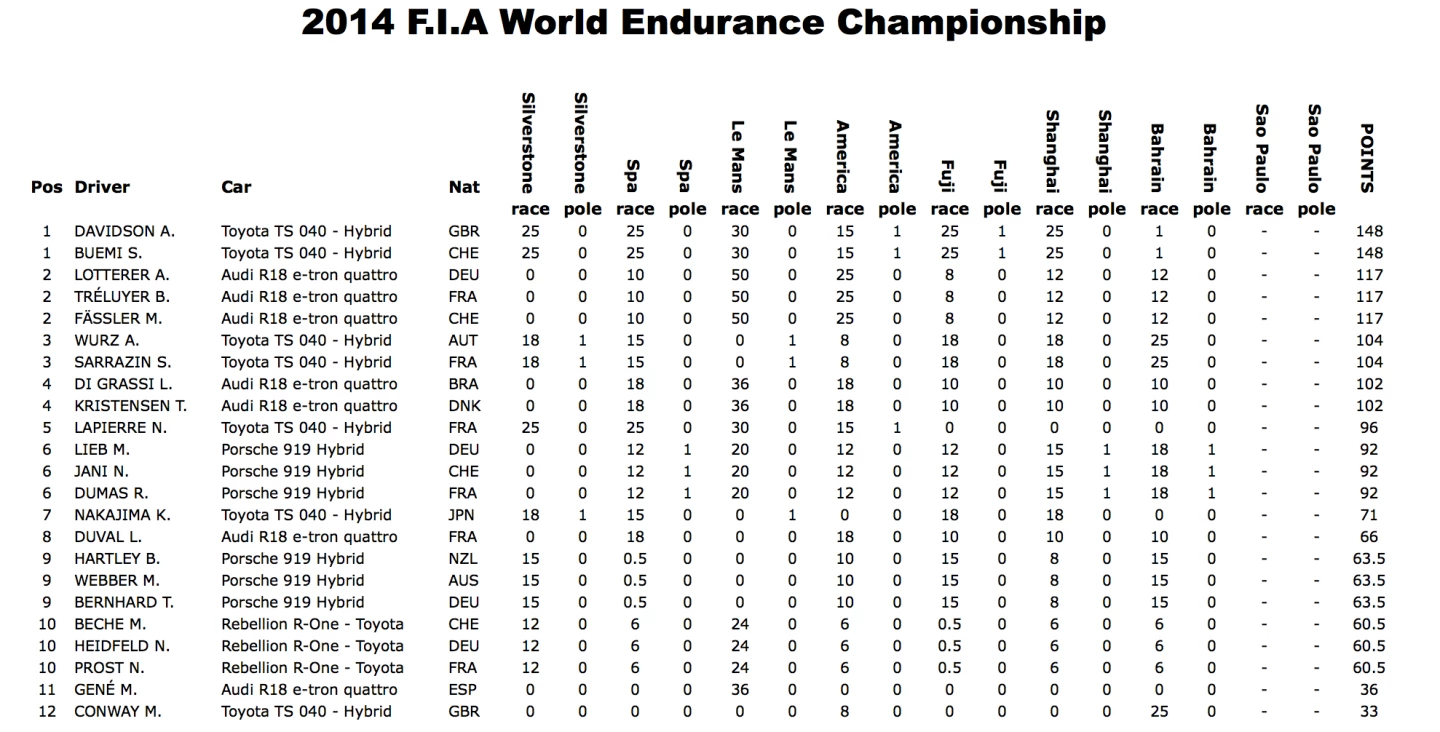
The championship-leading team which included Anthony Davidson and Sébastien Buemi, finished eleventh after losing time due to a technical issue but nevertheless became the 2014 drivers' World Champions, holding an unassailable lead in the standings with only one race remaining. The points score for manufacturers looks like this with one round remaining.
